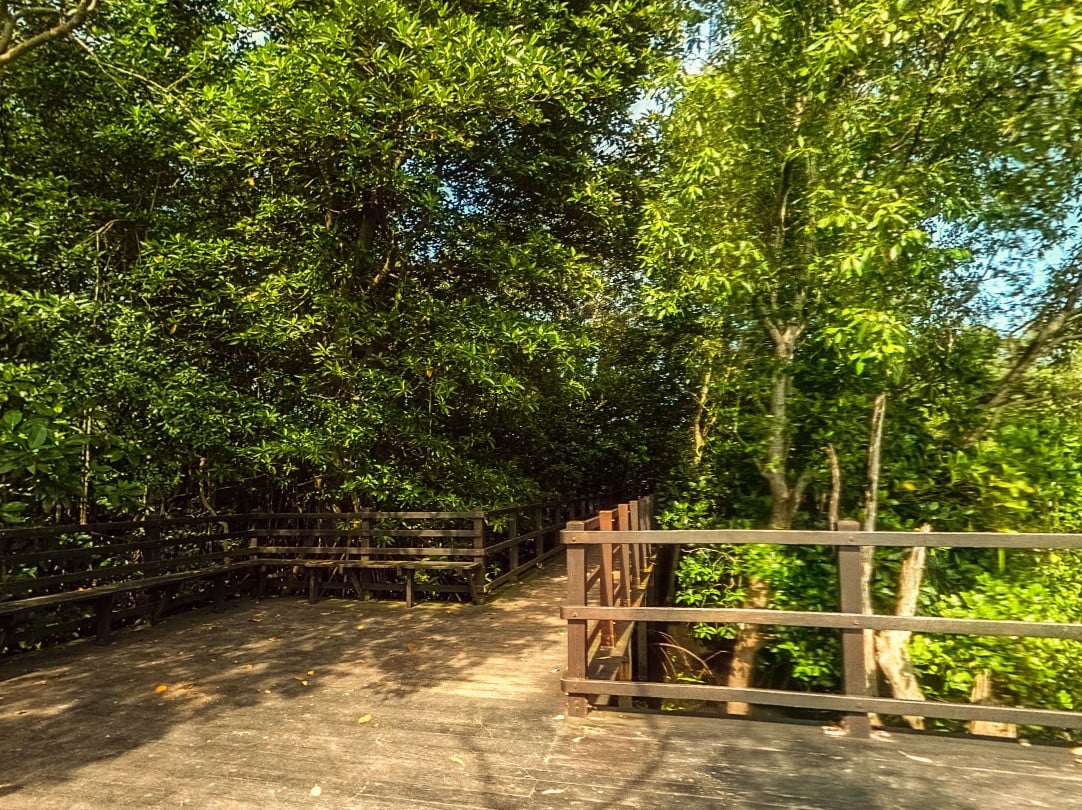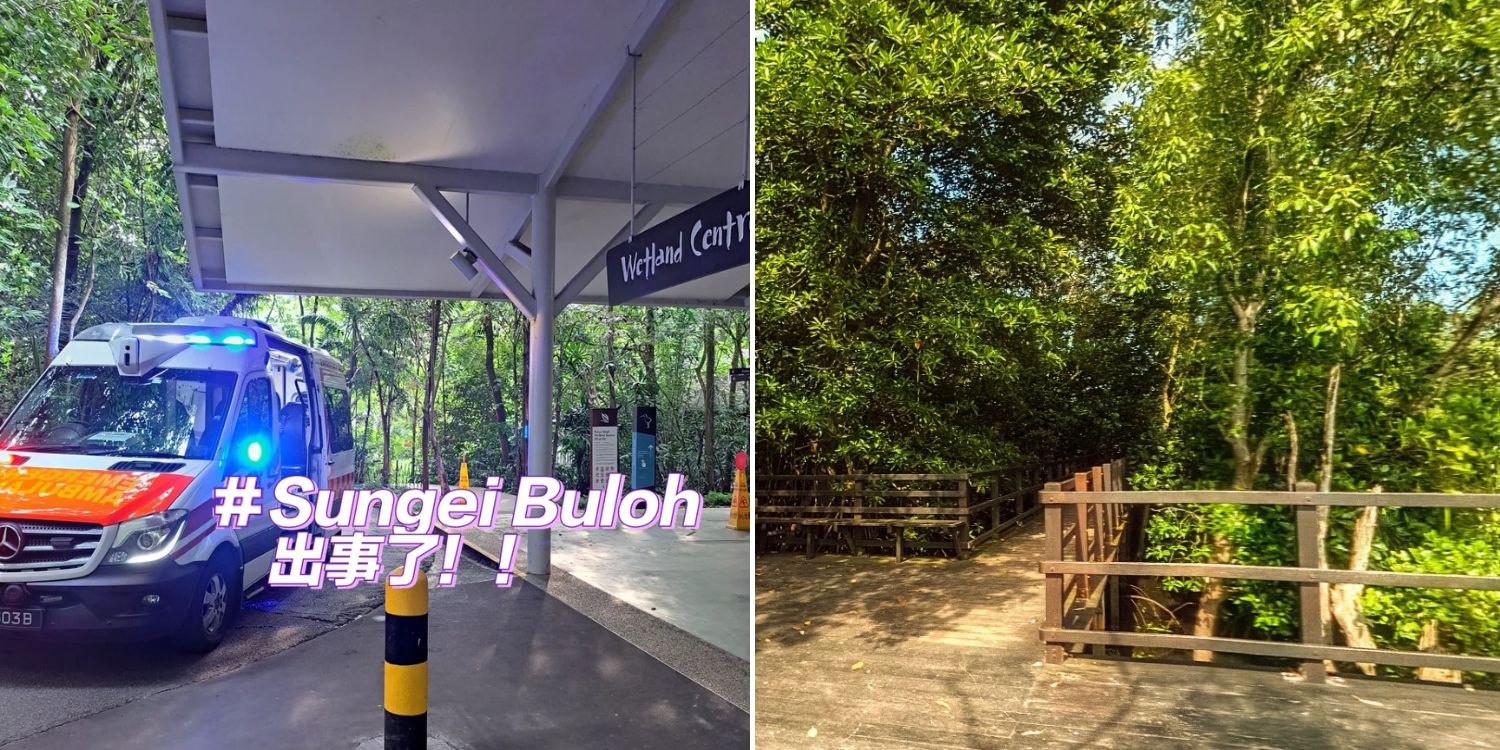4 ambulances seen at Sungei Buloh Wetland Reserve after hornet attack
A hornet attack at the Sungei Buloh Wetland Reserve caused five people to be sent to hospital, one of whom was reportedly a child.
A visitor to the nature preserve posted about the incident on social media platform XiaoHongShu, saying they saw four ambulances at the location.

Source: 四仔 on XiaoHongShu
Injured visitors seen applying ice packs to heads
The visitor was also surprised to see several people sitting on stools, with some applying ice packs to their heads.
Relatives of an injured person said he was “stung by bees”.
The netizen, who said they frequently visit the area, shared that it was their first time seeing anybody injured despite coming across crocodiles and venomous snakes.
Thankfully, all the affected visitors were conscious and seemed to be “alright”.
A child was among the injured
The XiaoHongShu poster, an engineer named only as Mr Gu (transliterated from Mandarin), told Lianhe Zaobao that the five injured visitors didn’t know one another.
While some of them looked like migrant workers, one of them was a child.
However, he hadn’t come across any hornets when he was walking around the reserve.
5 sent to hospital after Sungei Buloh hornet attack
In response to queries from MS News, the Singapore Civil Defence Force (SCDF) said it received a call for assistance at about 4.55pm last Saturday (14 July).
The location was 301 Neo Tiew Crescent — the Wetland Centre at Sungei Buloh.

Source: Google Maps
Four people were conveyed to Woodlands Health Campus, while one more person was sent to KK Women’s and Children’s Hospital — which specialises in child patients, as well as obstetrics and gynaecology.
Site of hornet attack in Sungei Buloh closed off
The National Parks Board (NParks) told The Straits Times (ST) that it would check the incident location for hornet’s nests.
The area, which is along a migratory bird trail near Platform 1, has been closed off.

Source: Google Maps
NParks officers had assisted the injured visitors before they were taken to hospital.
Hornets will readily sting to defend their hives: NParks
According to an advisory by NParks, hornets are large-bodied wasps that live in large colonies that build their nests using plant fibres.
Hornets will readily sting to defend their hives, it added.
In natural environments, hornet hives may be found on trees, within low-lying shrubs and on the ground.

Source: NParks
If stung, members of the public should wash the wound with soap and water and apply an ice pack.
If allergic reactions such as rashes, swelling and breathlessness occur, they should seek immediate medical attention.
Also read: 60-year-old man dies after getting stung by hornets while cycling past Sembawang temple
60-year-old man dies after getting stung by hornets while cycling past Sembawang temple
Have news you must share? Get in touch with us via email at news@mustsharenews.com.
Featured image adapted from 四仔 on XiaoHongShu and Google Maps.








